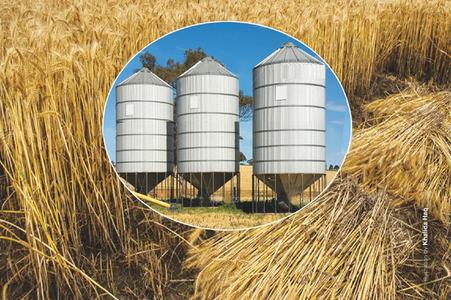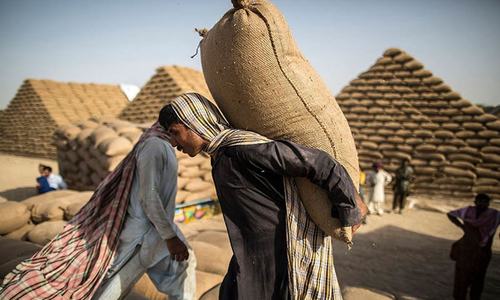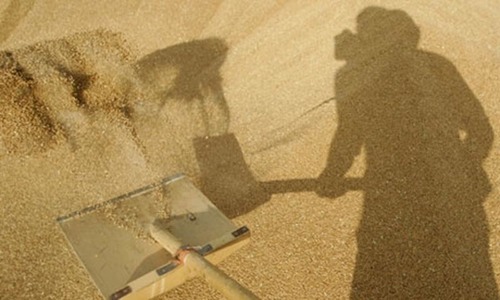ISLAMABAD: The government on Tuesday allowed export of 900,000 tonnes of wheat with Rs11 billion subsidy to circumvent domestic price fall, but it did not allow the import of gram pulse despite its increasing retail prices.
These decisions were taken at a meeting of the Economic Coordination Committee (ECC) of the Cabinet presided over by Finance Minister Ishaq Dar.
The meeting also did not ban import of flavoured and non-flavoured sheesha (both tobacco and tobacco-free) and its related materials even though the Supreme Court had ordered banning these imports for being injurious to health. Mr Dar believed that the matter fell in the jurisdiction of the federal cabinet and should not have been brought before the ECC.
Also approves $27.2m remittance to create jobs for Pakistanis in UAE
Informed sources said the ECC was informed that the government had allowed 1.2 million tonnes of wheat in January last year. Punjab was allowed 800,000 tonnes of wheat with $55 per tonne while Sindh was permitted to export 400,000 tonnes at $45 per tonne rebate out of federal account.
The Punjab and Sindh governments also contributed $35 and $45 per tonne rebate from their own account.
The ECC was, however, informed that despite this support, the governments of Punjab and Sindh could export through private sector only 236,000 tonnes and 164,000 tonnes, respectively.
For the current crop season, the government set a wheat production target of 26m tonnes and provinces have reported 25.5bn tonnes of output. With procurement target of more than 7m tonnes by the private sector for the current season, the government anticipated total forward stock of about 4m tonnes that was considered far higher than domestic consumption.
The meeting was also told that wheat exports could be made possible with a rebate of $120 per tonne. This would mean that apart from the existing export rebate (subsidy) of $90 per tonne, an additional rebate of $30 per tonne would be provided to the private sector on a fifty-fifty contribution.
This would involve a total export rebate of $108m (about Rs11bn) that would be paid out of public money in Pakistan to subsidise international wheat exporters.
It was feared that unless exported the domestic wheat and wheat flour prices would crash, causing losses to holders of the commodity stocks, both in the public and private sectors. It was also decided that the export shall be allowed till Nov 30, and the entire export process be completed by January 31, 2017.
Informed source said the Ministry of National Food Security and Research had proposed import of 25,000m tonnes because of continuously rising prices of gram pulse that were now touching Rs180 a kilogram in the retail market.
The minister did not allow import immediately but asked the Competition Commission of Pakistan to investigate reasons behind the price hike. Informed sources said the delay in the gram imports would allow market players to continue overcharging consumers.
The ECC also considered and approved the proposal submitted by the Ministry of Communications for the grant of exemption from customs duties, levies and other relevant taxes for import of equipment and construction material to contractors for the completion of two early harvest projects of Karakorum Highway phase-II (Thakot to Havellian section) and Karachi-Lahore Motorway (Sukkur to Multan section) under the China-Pakistan Economic Corridor.
On a proposal from the finance division, the ECC approved a remittance worth 100m Emirati dirham ($27.2m) on account of planned opening of wholesale branch of Bank Alfalah Ltd in the United Arab Emirates (UAE).
According to the proposal, this investment will help create employment opportunities for Pakistani nationals in the UAE which is also keenly desired by the Government of Pakistan.
Published in Dawn, July 27th, 2016














































